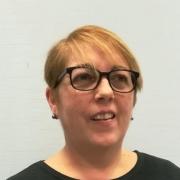
The importance of the associative movement and volunteering when dealing with these diseases.
Rare diseases are serious, chronic and low-frequency diseases that affect a very low percentage of population (lower than 5 in 10,000 people in the European Union), meaning that very little is known about these diseases at all levels. It is estimated that there are more than 7,000 different rare diseases affecting all age groups, from infants to adults. Although these diseases are different, as well as their symptoms, they have a similar effect on the daily lives of those affected and their families. Around 80% of these diseases have a genetic origin. Other causes may be infectious, allergic, degenerative or proliferative. They can involve different organs and affect motor, sensorial and neurological skills in those affected. It is estimated that they affect 6% to 8% of the general population. In Europe, it is calculated that there are around 30 million people affected.
Rare diseases are the big overlooked ones, and this generates a deep feeling of anxiety, abandonment, and loneliness in affected people. This is why the Catalan Federation for Rare Diseases (FECAMM) publicises the big deficits faced by those affected and we work to give “visibility” to rare diseases. Some of these diseases don’t have medical treatment or the treatment available is palliative. These diseases can lead to serious degrees of disability. At the Federation, we offer information, support and advice services. FECAMM is integrated by non-profit associations, fighting together against rare diseases. The aim is bring together the multiple associations so as to be stronger and make their voices heard, to provide a more comprehensive and improved support to those affected and their families, while also giving visibility to the group and raise awareness in society.
We highlight how important the task of non-profit organizations and their volunteers is, since they are the ones in direct and close contact with those affected and their families, offering them support and comprehensive care. When first diagnosed, those affected and their families find themselves facing this situation alone, and often find support and comfort in these organizations that specialize in each of the different diseases. At these associations, these people can feel supported, cared for and find understanding, as well as receiving a lot of new information on the diseases. That is why, at FECAMM, we highlight the importance of the associative movement and volunteering.
We will continue to work hard to reach the goal of making rare diseases the same as all other diseases, and for this we must join our efforts, coordinate, exchange experiences, push for research and give support and attention among ourselves.



Add new comment